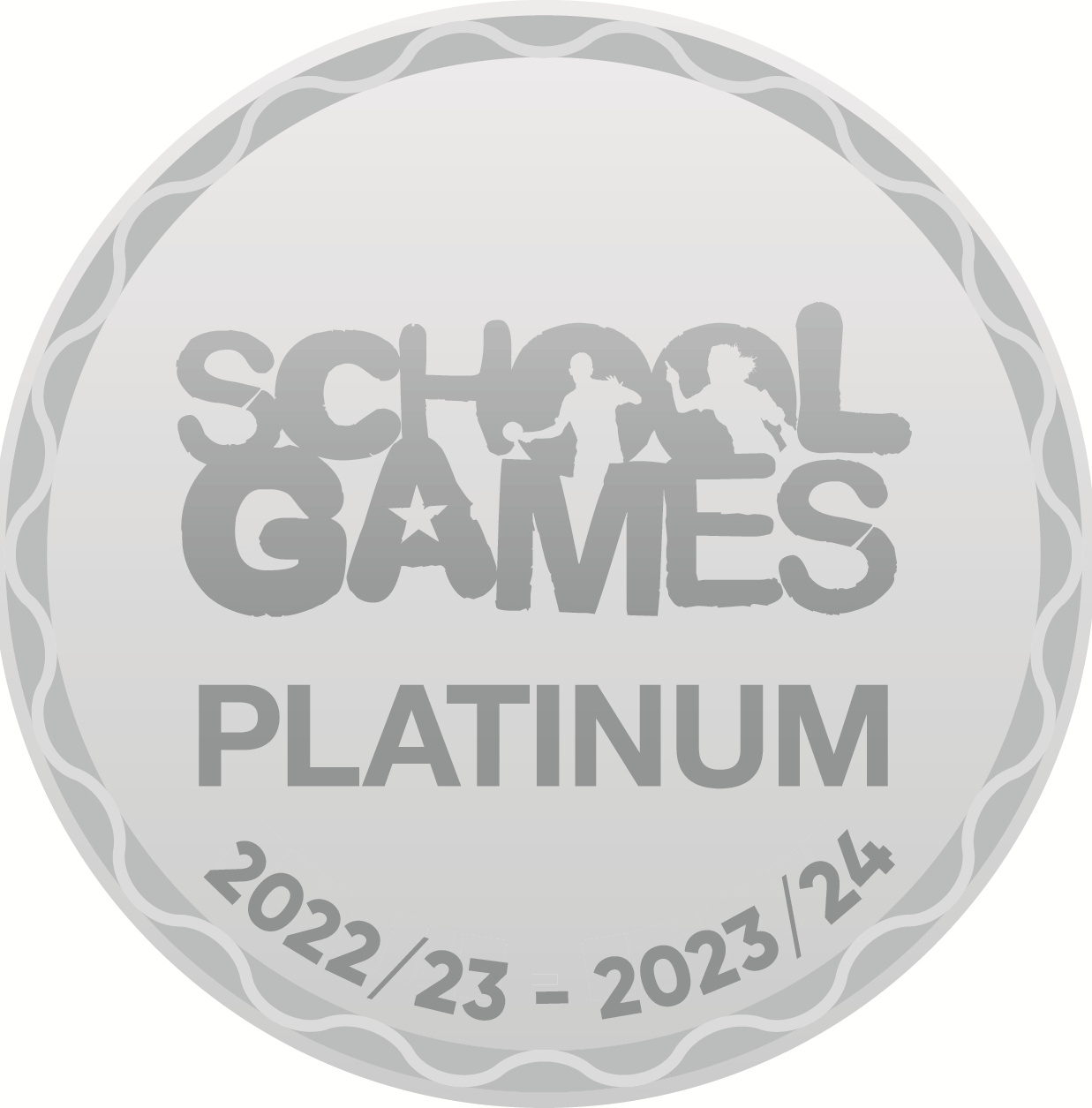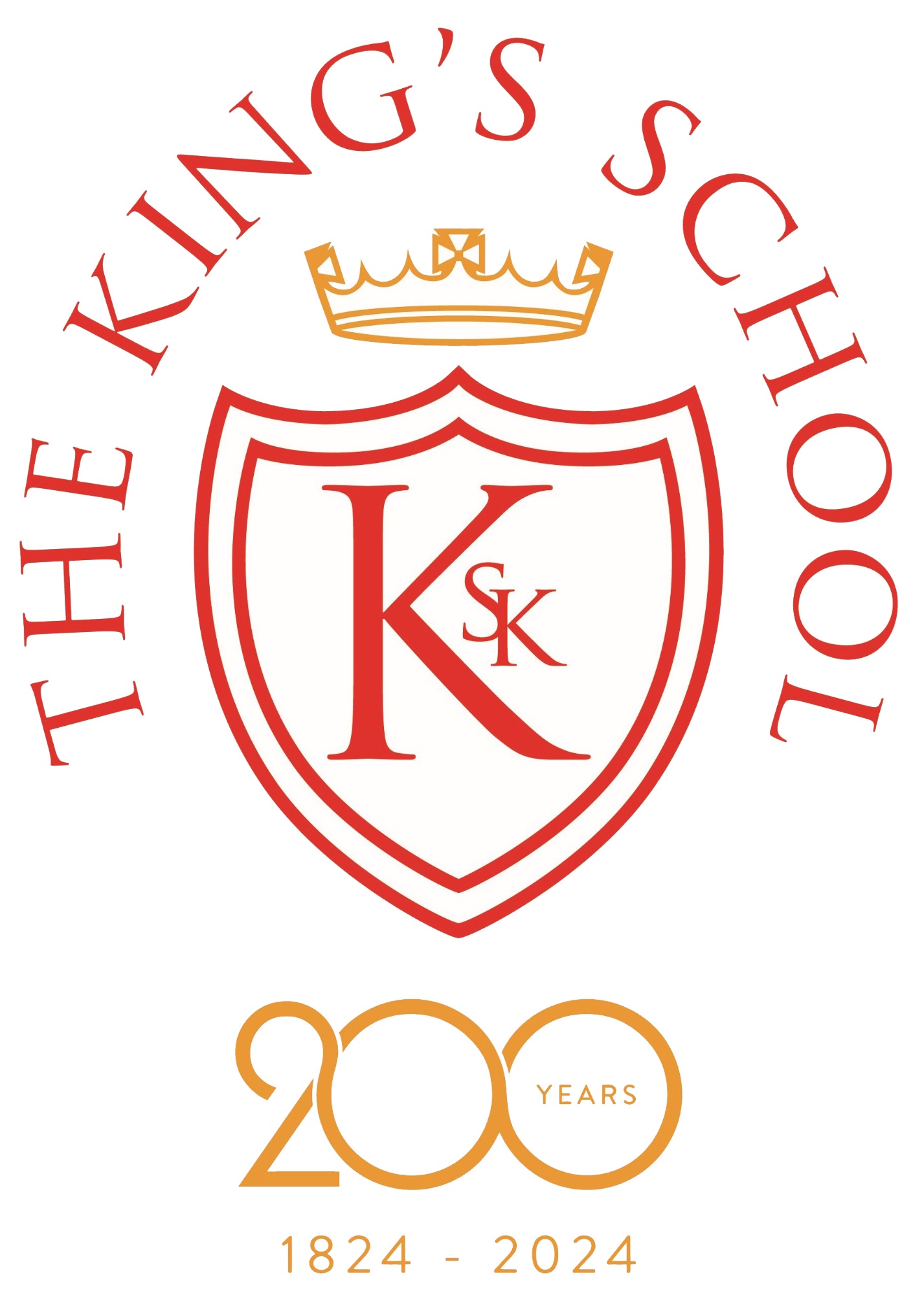Physical Education (PE)
"I can do all things through Christ who strengthens me" (Philippians 4:13)

We are very proud to achieve the School Games Platinum Award. See case study at the base of the page.

Intent - How our curriculum is structured and organised
In accordance with The National Curriculum, children in key stage 1 & 2 have two hours of timetabled physical education each week.
- We provide a carefully planned broad, balanced and inclusive physical education curriculum that develops pupils’ confidence to try new activities as well as enhancing their existing skills in a diverse range of environments and experiences.
- Our PE lessons are planned using the Get Set 4 PE platform to ensure year-on-year progression (see knowledge and skill progression map). This planning platform aligns with our school values, our whole-child approach to PE and the objectives laid out in the National Curriculum. Teachers use their knowledge of their pupils and formative assessment to adapt this planning to ensure all pupils are challenged and engaged in lessons. External providers are very much part of the teaching team and communicate regularly and effectively with class teachers to ensure continuity and progress.
- We are fully aware of the impact a child’s early sporting experience can have on their lifetime relationship with sport and activity. In children's development at The King's, we emphasise both personal challenge, where individual goals are set and successes celebrated, and collaboration, where success is gained through teamwork. With this as a base, opportunities for healthy competition are gradually increased. These opportunities serve to raise game intensity and motivation, while developing children's sporting resilience. Opportunities to engage in competitive sport are promoted through our PE curriculum, intra and inter-school competitions and extracurricular clubs.
- We value the role of leadership in PE by providing opportunities for all pupils to support, encourage and develop others. In a designated Year 5 PE unit of work, pupils train to become Sport Leaders in the playground and to run our annual Sports Day.
- We listen to and value the views of our pupils and teachers who are given regular opportunities to review our PE curriculum to ensure it continues to reflect the needs and motivations of our school community.
- Alongside the development of physical skills, our curriculum provides opportunities for children to develop their Social, Emotional and Thinking through play, adapted games and activities.
- Here at The King's, we embrace the philosophy of S.T.E.P. whereby teachers adjust the elements of Space, Task, Equipment, and People to make activities more accessible, inclusive or challenging for individual children, ensuring that all are engaged and learning.
Implementation - How our curriculum is taught
Early years Foundation Stage (EYFS)
Children participate in one hour of timetabled physical education, but are also encouraged, through a programme of active learning, to be engaged in physical activity throughout the day. The outdoor learning area is well-equipped with bikes, trikes, cars and outdoor play equipment. Children also learn about the health benefits of physical exercise, a healthy diet, and talk about ways to keep healthy and safe.
All PE units taught in EYFS are designed and aligned to the Early Learning Goals. Our PE curriculum and a carefully crafted outdoor play programme combine to ensure pupils develop their knowledge and skills, and achieve their learning goals.
Key Stage 1:
The aim of our Physical Education curriculum at Key Stage 1 is to develop pupils’ competence and confidence in performing fundamental movement skills. In doing so, they will extend their agility, balance and coordination, individually and with others. Pupils will also be encouraged to engage in competitive and cooperative physical activities in a range of increasingly challenging situations.
In accordance with the National Curriculum, pupils are taught:
- movement skills such as running, jumping, balancing, throwing and catching and how to apply these in a range of adapted activities and games;
- the fundamental movement skills of agility, balance and coordination through a variety of gymnastic, dance, and outdoor activities;
- simple tactics, such as attack and defence through adapted games (net & wall, Striking & Fielding , Target and Invasion);
- to enjoy physical activity and play through fun and challenging activities;
- to work independently, cooperatively and communicate with others through team-building activities.
Key Stage 2:
The aim of the physical education curriculum in Key stage 2 is to apply and develop a broader range of skills and to learn how to use them in different ways, such as connecting gymnastic movements into a sequence, creating choreographed dance routine or playing a game of hockey. Underpinning this is S.E.T. (Social, Emotional, Thinking); through this approach, our children develop an understanding of how to improve in different physical activities and sports and learn how to evaluate their own success.
In accordance with the National Curriculum, pupils are taught:
- running, jumping, throwing and catching to develop core skills;
- to play competitive modified games of Striking & Fielding (rounders and cricket), Net & Wall (tennis) and Invasion (football, basketball, hockey, rugby, netball and handball) and apply basic tactics for attacking and defending through these games;
- to develop flexibility, strength, technique, control and balance through athletics, gymnastics, yoga and dance;
- to use a range of movement patterns to perform dances and explore a wider range of movement;
- to take part in outdoor and adventurous activity challenges both individually and within a team;
- how to improve in different physical activities and be able to evaluate and recognise their own skill levels and that of others.
Competitive sport:
Opportunities are made for all children to be involved in competitive sport, through intra-curriculum learning within PE units and inter-house competitions, across a wide range of sports.
Children also participate in inter-school competition, playing in leagues and tournaments against teams from Richmond and Kingston boroughs. The King’s school engages in the borough leagues for netball, tag rugby and football, participates in the annual athletics (Borough Sports and Borough Cross Country) and gymnastics competitions, as well as the Borough Swimming Gala.
Non-competitive sport:
Within PE lessons, children engage in a variety of non-competitive activities, designed to develop specific skills - such as tactical awareness and strategy in a game of tag rugby - and to appreciate each others' achievements - for example, a gymnastics performance at the end of a unit.
The school takes advantage of the 'blue' events now on offer in Richmond Borough, allowing children of varying abilities to attend, and thus raising inclusion.
Swimming and Water Safety:
Swimming instruction is part of the PE curriculum in KS2 for years 3 – 6.
The focus of the swimming instruction is to teach pupils to:
- swim competently, confidently and proficiently over a distance of at least 25 metres;
- use a range of strokes effectively; for example, front crawl, backstroke and breaststroke;
- perform safe self-rescue.
Children participate in a 30-minute swimming lesson in differentiated ability groups, to enable the best progress. The safe self-rescue instruction is taught in Year 6 for those who can swim 25 metres competently.
Children are assessed, both at the start and end of a block of lessons, on their ability to perform good stroke technique in both front and back crawl.
Children who are not swimming, or are not yet confident swimmers, will work on water confidence and stroke technique.
The opportunity is offered for children to earn distance badges, ranging from 5–1,000 metres. Distances achieved are reported to parents and parents are given the opportunity to purchase badges and certificates. It is government expectation that all children by the end of year 6 can swim 25metres.
Extra-curricular clubs:
Through an extensive range of extra-curricular clubs and holiday sports camps, opportunities are provided for children to extend their school day and enjoy being physically active.
Many of our pupils attend sports clubs and activities out of school, inspired by their love of sport and PE in school. We are very fortunate to have wonderful facilities and strive to maximise their use to enhance the children's PE experience.
Adventurous activity
OAA units are built into our PE curriculum, focusing on being outdoors, team building and linking with other curriculum subjects, such as map work in geography.
In Year 4, children are introduced to taster sessions in water based activities such as canoeing and rafting at Thames Young Mariners, an outdoor water sports centre in Ham.
In years 5 and 6, children attend residential trips where they participate in a programme of outdoor challenge activities such as: orienteering, archery, climbing and abseiling, woodland skills, high ropes and team challenge courses.
Impact - A cohesive learning journey
- Children receive high quality teaching and learning in physical education and make progress in their physical skills, as well as their social, emotional and thinking.
- Children are physically active for sustained periods of time both in PE lessons and within their playtimes.
- Children are inspired by PE lessons and extra-curricular sports clubs and enjoy being physically active inside and outside of school. (Our pupil surveys reveal how much our pupils enjoy PE.)
- Children understand the benefits of a healthy lifestyle, how it affects their well-being and how it supports their health and fitness.
The future:
Children leave The King’s school with a strong foundation in sports skills, which they can apply to any new sport they engage in at secondary school and with the motivation, the physical confidence, competence and knowledge and understanding for lifelong participation in physical activity.
Celebrating our Success:
The School Games Mark is a government led awards scheme launched in 2012 to reward schools for their commitment to the development of competition across their school and into the community. Having been awarded the Gold every year since 2015, The King's school achieved the highest accolade of Platinum in 2022-2023. The King's will work towards maintain this status for 2023-2024, as opportunities continue to open up for sport beyond the school.
Please see attached below:
• The King’s School PE Key Overview
• The King’s School PE Knowledge and Skills Progression map
